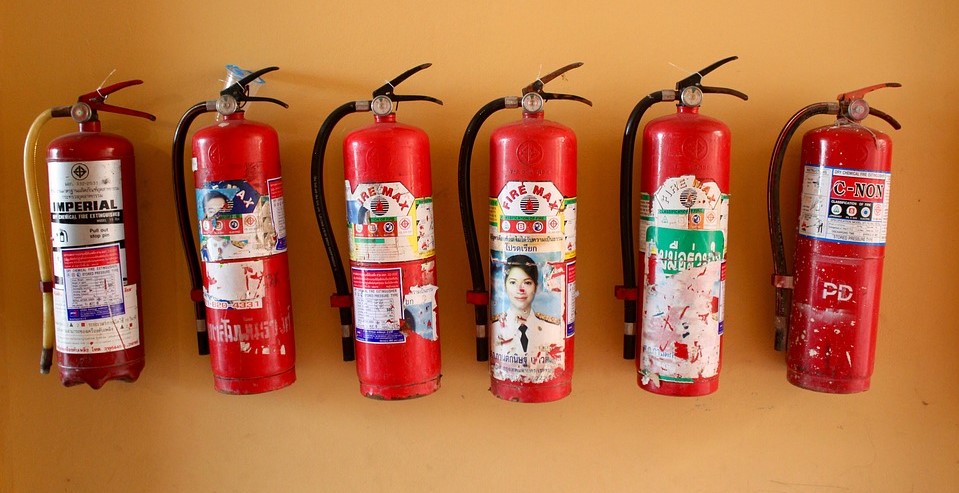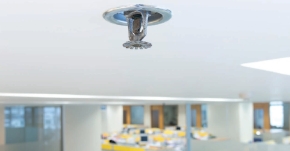Extinguishment

|

|
International Fire Safety Standards: Common Principles, Safe Buildings Save Lives, First Edition, published by the International Fire Safety Standards Coalition in 2020 defines extinguishment (or fire control) as: ‘Suppressing of fire and protecting of the surrounding environment.’
The most common extinguishing agents are:
- Water
- Foam
- Carbon dioxide
- Dry powder
- Clean agents
- Inert gases
These agents can be applied either by the occupants themselves, through auto-suppression systems, or by the fire and rescue service.
Sprinklers are designed to extinguish small fires or contain growing fires until the fire-and-rescue service arrives. Almost all buildings over 30m high must be fitted with a sprinkler system installed in accordance with the appropriate British Standards.
Sprinkler heads are heat sensitive and normally activate at 68°C. Each sprinkler head acts as its own heat detector and only those in the fire area will be activated. An individual sprinkler head typically covers around 9m2.
In certain buildings, it can be difficult for the fire-and-rescue service to safely reach and work close to fires. Under such circumstances, additional facilities are required to ensure that there is no delay and to provide a secure operating base. This might include:
[edit] Related articles on Designing Buildings Wiki
Featured articles and news
A case study and a warning to would-be developers
Creating four dwellings... after half a century of doing this job, why, oh why, is it so difficult?
Reform of the fire engineering profession
Fire Engineers Advisory Panel: Authoritative Statement, reactions and next steps.
Restoration and renewal of the Palace of Westminster
A complex project of cultural significance from full decant to EMI, opportunities and a potential a way forward.
Apprenticeships and the responsibility we share
Perspectives from the CIOB President as National Apprentice Week comes to a close.
The first line of defence against rain, wind and snow.
Building Safety recap January, 2026
What we missed at the end of last year, and at the start of this...
National Apprenticeship Week 2026, 9-15 Feb
Shining a light on the positive impacts for businesses, their apprentices and the wider economy alike.
Applications and benefits of acoustic flooring
From commercial to retail.
From solid to sprung and ribbed to raised.
Strengthening industry collaboration in Hong Kong
Hong Kong Institute of Construction and The Chartered Institute of Building sign Memorandum of Understanding.
A detailed description from the experts at Cornish Lime.
IHBC planning for growth with corporate plan development
Grow with the Institute by volunteering and CP25 consultation.
Connecting ambition and action for designers and specifiers.
Electrical skills gap deepens as apprenticeship starts fall despite surging demand says ECA.
Built environment bodies deepen joint action on EDI
B.E.Inclusive initiative agree next phase of joint equity, diversity and inclusion (EDI) action plan.
Recognising culture as key to sustainable economic growth
Creative UK Provocation paper: Culture as Growth Infrastructure.





















